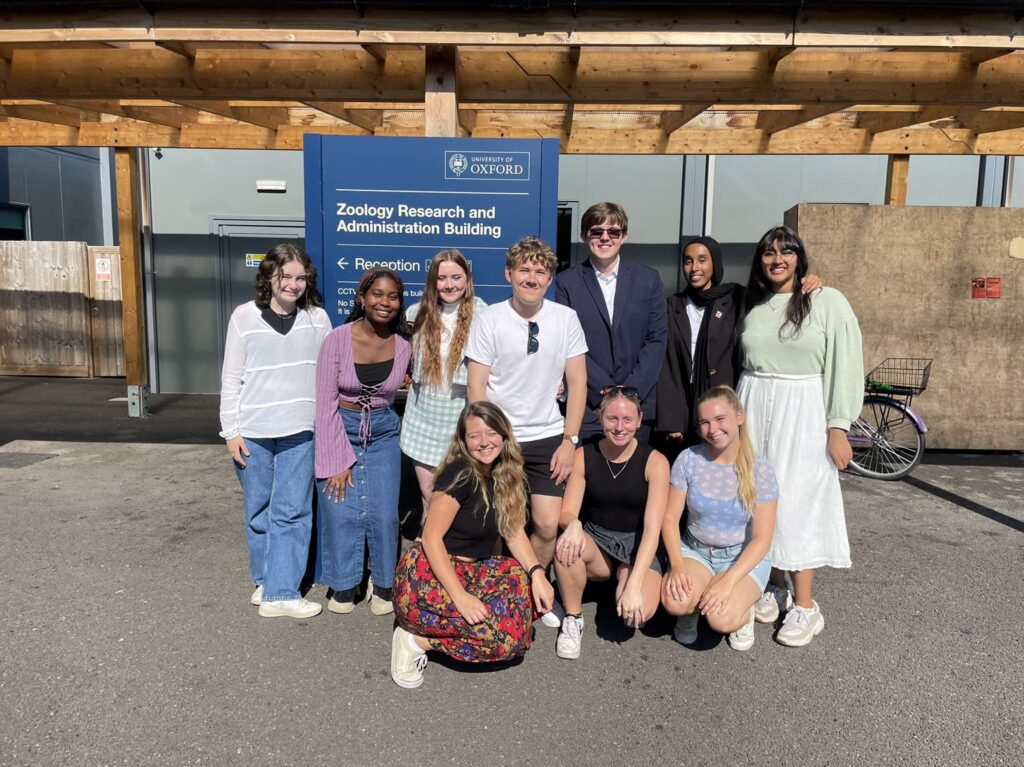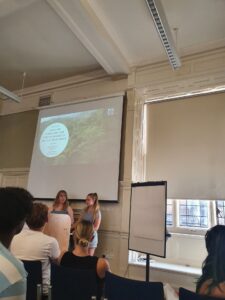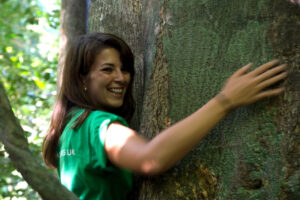University of Oxford
11a Mansfield Rd
OX1 3SZ
UK

The UNIQ+ programme gives undergraduates a chance to experience what it would be like to pursue postgraduate study at Oxford, via research-based internships. ICCS was lucky to work with four UNIQ+ interns this summer. In this blog, one of those interns, Lucy Robinson, shares her experiences on the programme. To learn more about the UNIQ+ programme, check out this link.
In February, I applied for UNIQ+, a summer internship program at Oxford that aims to provide a taste of graduate study. At this point, I had applied for what felt like hundreds of internships in environmental consultancy with no success, so I expected this application to be the same. Much to my surprise, I was selected for an internship in the Zoology Department, which in itself was a good confidence boost – and perhaps a sign that graduate study is a better option for me than environmental consultancy.
When I first arrived in Oxford, I was worried that I had been selected by mistake and that I would spend the next six weeks feeling way out of my depth. These fears were promptly squashed once I met Steph, my supervisor, who made me feel immediately welcome and was keen for this to be a valuable experience, not just an extra pair of eyes to read papers. Over the next few weeks I would meet the rest of ICCS and appreciate the wonderful perks of working in the Department of Zoology – such as cake Thursdays which brought the whole department together and was definitely a highlight amongst all the UNIQ+ interns! I was grateful to have a partner on my project, Meg, particularly during the first few weeks whilst we were settling in.
Our project focussed on the relationship between Indigenous peoples and species diversity in forests – namely the conditions required for the conservation of species diversity on Indigenous- and community-held lands. Our task for the next six weeks was to produce a literature review to establish which conditions are the most important and what evidence exists to support this. I had produced a very short literature review at university, but this was just a few hundred words as part of a larger report, so I was unsure of how I’d find this. It took me a couple of weeks to fully understand the selection and review process, but once I’d settled into it I really enjoyed the systematic approach.
So that we both got the chance to work independently, Steph encouraged us to choose slightly different research questions to investigate separately once we had finished selecting the papers to review. Since Meg chose to focus on human rights, I chose to focus on the internal enabling conditions – the community characteristics and practices – as this complemented Meg’s focus on one of the external aspects. Once we’d selected the literature, Steph introduced Meg and me to NVivo, a qualitative data analysis software that neither of us had used before. Whilst totally different to anything I had used before, I found NVivo quite intuitive to use and plan to use it for my dissertation in final year. When I was coding the papers, I noticed that many focussed on the spiritual and cultural beliefs of Indigenous peoples and local communities, which I really enjoyed researching.
During the internship, all the ICCS UNIQ+ interns were asked by E.J. to present our current research in one of the Wednesday lab meetings. I was initially keen to do this, but the nearer it got to Wednesday the more nervous I became about presenting to a group of academics who are obviously far more experienced than I am. Once again, my fear proved to be unnecessary, particularly since ICCS are such a friendly group of people, and it was a valuable opportunity to get more experience presenting to a large(ish) group. Being able to take part in the lab meetings was a great experience, particularly the chance to hear about everyone’s research which always brought the lesser-mentioned aspects of conservation to my attention.

Lucy and Meg ended the internship by presenting their research findings
Before I started my UNIQ+ internship I was very unsure about doing a PhD in the future, I’d only ever vaguely considered it purely for the purposes of extending university life and avoiding going into the ‘real world’. I have enjoyed the research process and flexible structure of my UNIQ+ program, particularly the freedom to direct the topic towards my interests, so I think it is very likely that I will apply to do a PhD in the future, although it is still a couple of years away!
Many thanks to Steph, Meg, E.J. and all of ICCS for making this such a fantastic experience.

